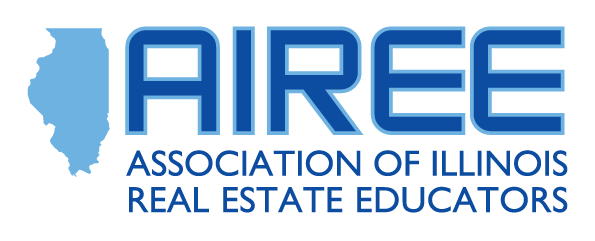- Home
- How Sponsoring Brokers Should Engage with the IDFPR During a Compliance Audit
How Sponsoring Brokers Should Engage with the IDFPR During a Compliance Audit

Introduction
Understanding the Goal of a Compliance Audit
The Illinois Department of Financial and Professional Regulation (IDFPR) Division of Real Estate (DRE) conducts routine compliance audits to ensure that sponsoring brokers adhere to the Real Estate License Act, Administrative Rules, and other regulatory requirements. These audits are primarily corrective, aiming to identify deficiencies, recommend improvements, and confirm that corrective actions have been implemented.
Selection Process: Who Gets Audited?
Compliance audits are conducted randomly and may involve any sponsoring broker, regardless of the size of their brokerage. Sole proprietorships—whether sponsoring only themselves or multiple licensees—are also subject to audits. Particular attention is often given to new brokerage offices within their first six months of operation.
Audit vs. Investigation
It’s important to differentiate between an audit and an investigation:
Audits are routine and corrective in nature, randomly conducted to promote compliance.
Investigations are typically triggered by consumer complaints or major issues identified during an audit. Investigations can lead to punitive actions.
Preparing for the Audit
The Initial Notice
Sponsoring brokers are notified via email, addressed to both the Designated Managing Broker and the Sponsoring Broker. This notification indicates that the office has been selected for an audit and specifies whether the audit will be conducted remotely (via email) or onsite at the brokerage’s business location. To determine this, brokers must complete and submit the Compliance Examination Report by the date specified in the notice, usually within 30 days.
Remote or Onsite Audits
After reviewing the Compliance Examination Report, the examiner will decide whether the audit will be conducted remotely or onsite. In either case, brokers should be prepared to provide detailed documentation.
Topics Covered in the Compliance Questionnaire
The audit questionnaire typically covers the following areas:
Office Information:
Office location and signage.
Use of trade names or franchise affiliations.
Licensees, Agents, and Assistants:
Employment agreements for licensed agents and assistants.
Roles and compensation of unlicensed assistants.
Compliance with laws related to indirect payment of compensation.
Company Licensure:
Corporation, LLC, or partnership filings with the Secretary of State.
Brokerage Agreements and Contracts:
Documentation of written agreements, including listing and selling agreements.
Required disclosures, such as:
Designated Agency Disclosure.
Contemporaneous Offers Disclosure.
Compensation Disclosure & Agreement.
Environmental disclosures and broker interest disclosures.
Property management agreements and rental finding services.
Advertising Practices:
Accuracy and truthfulness.
Proper use of names and disclosures of agent or broker interest.
Compliance with rules for sharing consumer information and guaranteed sales plans.
Escrow and Record Keeping:
Escrow account journals, ledgers, and reconciliations.
Record-keeping practices, including backup systems for transaction records.
Supervision and Daily Operations:
Oversight of new licensees completing post-licensing requirements.
Supervision of licensed and unlicensed assistants and employees.
Responding to Auditor Requests
Providing Documentation
Examiners may request additional documentation to supplement the Compliance Examination Report. Examples include:
Lists of active, pending, and closed transactions (spanning the last two years).
Records of dual agency and broker interest transactions.
Escrow account journals, ledgers, and bank reconciliations.
Copies of the brokerage’s Policy and Procedures Manual (if applicable).
Employment agreements between the Designated Managing Broker and Sponsoring Broker (required for sole proprietors with sponsored licensees).
Photos of office signage.
If the audit is conducted onsite, examiners may randomly select file folders (usually 3-5 per category) to review transaction paperwork for compliance with mandatory disclosures and documentation requirements.
Addressing Deficiencies
If deficiencies are identified, the examiner will outline corrective measures in a follow-up email. The sponsoring broker must provide proof of compliance by the specified deadline. Examples of deficiencies include:
Missing documentation, such as disclosures or agreements.
Non-compliance with specific content or procedural requirements.
Inadequate oversight of licensed activities, especially for new or unlicensed personnel.
Failure to address deficiencies may result in referral to an investigation, which can lead to disciplinary actions.
Closing the Audit
Once all corrective measures have been implemented and verified, the Designated Managing Broker will receive an email confirming that the file is closed. Routine audits typically take 3 to 6 months to complete.
If the audit reveals deficiencies or license law violations that cannot be easily resolved by the licensee, the auditor may refer the matter to Investigations for further review.
Best Practices for Sponsoring Brokers
To streamline the audit process and avoid common pitfalls:
Stay Organized: Maintain thorough, up-to-date records of all transactions, agreements, and escrow activities.
Review Compliance Regularly: Conduct internal audits to ensure ongoing compliance with IDFPR requirements.
Prepare for Audits: Familiarize yourself with the Compliance Examination Report and required documentation.
Respond Promptly: Submit all requested materials by the specified deadlines and address deficiencies thoroughly.
By following these practices, sponsoring brokers can efficiently navigate IDFPR compliance audits, ensuring their brokerage remains in good standing and aligned with state regulations.
